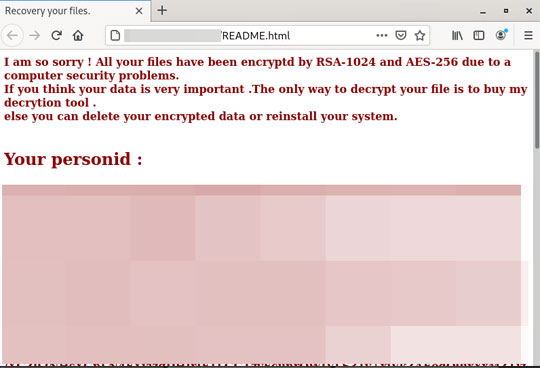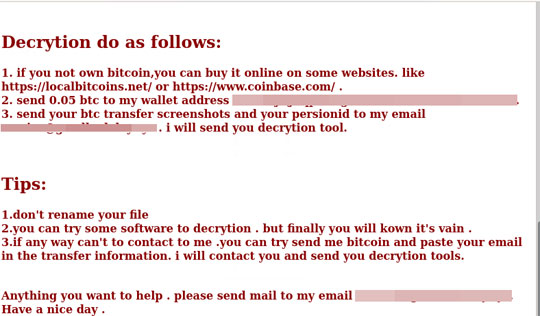Ransom.Linux.TELLUDPASS.THLBOBA
Ransom:Linux/FileCoder.A!MTB (MICROSOFT)
Windows


Threat Type: Ransomware
Destructiveness: No
Encrypted:
In the wild: Yes
OVERVIEW
This Ransomware arrives on a system as a file dropped by other malware or as a file downloaded unknowingly by users when visiting malicious sites.
It connects to certain websites to send and receive information.
It drops files as ransom note.
TECHNICAL DETAILS
Arrival Details
This Ransomware arrives on a system as a file dropped by other malware or as a file downloaded unknowingly by users when visiting malicious sites.
Installation
This Ransomware drops the following files:
- home\{user}\encfile.txt → list of encrypted files
- home\{user}\public.txt
- home\{user}\showkey.txt
It adds the following processes:
- /bin/bash -c service mysql stop
- /bin/bash -c service oracle stop
- /bin/bash -c systemctl disable postgresql*
- /bin/bash -c systemctl disable mysql*
- /bin/bash -c systemctl disable oracle*
Other Details
This Ransomware connects to the following website to send and receive information:
- http://{BLOCKED}.{BLOCKED}.216.148
It does the following:
- It scans the following local IP addresses for SSH connection:
- {BLOCKED}.{BLOCKED}.0.0/24
- {BLOCKED}.{BLOCKED}.0.1/12
- {BLOCKED}.{BLOCKED}.0.0/8
- It searches for keys in the following folders to use for SSH connection:
- /home/{username}/.ssh → if ran without admin rights
- /root/.ssh → if ran with admin rights
It accepts the following parameters:
- -cf {string} → config yaml file
- -df {string} → decrypt file
- -dir {string} → encrypt or decrypt dir
- -goon → go on encrypt
- -d → decrypt file
Ransomware Routine
This Ransomware avoids encrypting files found in the following folders:
- ^/bin
- ^/boot
- ^/sbin
- ^/tmp
- ^/etc
- ^/lib
- ^/proc
- ^/dev
- ^/sys
- ^/usr/include
- ^/usr/java
It appends the following extension to the file name of the encrypted files:
- .locked
It drops the following file(s) as ransom note:
- {Encrypted Directory}\README.html


SOLUTION
Step 1
Search and delete this file
- home\{user}\encfile.txt
- home\{user}\public.txt
- home\{user}\showkey.txt
Step 2
Scan your computer with your Trend Micro product to delete files detected as Ransom.Linux.TELLUDPASS.THLBOBA. If the detected files have already been cleaned, deleted, or quarantined by your Trend Micro product, no further step is required. You may opt to simply delete the quarantined files. Please check the following Trend Micro Support pages for more information:
Step 3
Restore encrypted files from backup.
Did this description help? Tell us how we did.


